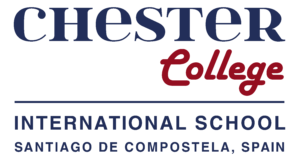Today we have completed our 12th week of virtual learning at Chester College International School. In early March, when it was announced that students would be confined to their homes due to Covid-19, who could have guessed that two and a half months later, our students would still be at home. The students would have ahead of them the enriching process of quickly adapting to learning with a teacher from a distance. We are satisfied with the results: with humility, we believe that we have achieved this goal beyond our expectations.
It will be difficult to erase from memory the meetings between teachers and the directive team at the beginning of this health emergency, everyone with recently purchased masks, worried about the circumstances that lie ahead. Everyone was concerned about social distancing, something that we would talk frequently about in the coming months. The decision was unanimous: when faced with a health emergency that would continue for some time, it was fundamental to implement a technological solution that would permit us to work well, in an orderly and interactive fashion, with students of all educational levels, from the little ones of Pre-School to our high school students. Wherever possible, facilitating the establishment of important routines and maintaining the same schedule as in-person classes was considered a priority.
And this is how, with these criteria in mind, Tuesday, March 17, after two shifts of training for teachers, we began to use the educational platform, Google Classroom. We created personalized classes for all educational levels and assigned email addresses to students. In two days we integrated dynamic video-classes that finally allowed us to see each other face to face! What a delight! We had managed to make learning, despite the distance, something that would happen in person.
The learning processes evolved, changing as needs and deficiencies were identified. Family suggestions were also the base of promoting communication and constant feedback. It soon became evident, for example, that 45 minute video sessions were too long for the youngest students. Sessions were shortened and adapted to the age of the children, directing the rest of the session to other topics, tasks and projects. The ways of turning in and correcting homework were polished, the evaluation systems evolved, and tablets for science classes were introduced.
Class size, both for in-person education matters, but also for virtual learning, does matter. In this, the winds blew in our favor during this health crisis and beyond. Chester College is a small and quaint center, where the average class size is 8 and where a teacher can realistically work with this number of students in an online format. They can see the students all at one time on a computer or TV screen, and they can speak and encourage debate. Just the same as in a physical classroom, with these numbers it is easier for students to focus and to not take a mental “vacation”, whether they are in a school classroom or in their living room at home.
This student to teacher ratio is key to teaching languages, where the practice of communication is essential. To see each other, to hear each other, to repeat, to express, and to correct pronunciation are of the utmost importance. In the area of English learning, digital platforms for accessing texts were used. The most important objective: strengthening the inputs in the English language, to continue activating Shakespearean language, something that is very rooted into the educational projects of the school. Time promoting the oral practice of German was maximised during weekly lessons, all while continuing with classes in the Galician language.
This low student to teacher ratio proved to be key in being able to provide continuity, without pause, to music and violin classes to all students in pre-school and primary school. We give a big round of applause to all of the messengers that delivered violins to students´ homes during the first days of the pandemic!
It is worth mentioning the intense sessions in reinforcing and consolidating the preparation for the E.B.A.U. (Evaluación del Bachillerato para el Acceso a la Universidad) for high school students. We focused on techniques of support for maintaining focus and concentration and self reflection around personal and academic goals.
This week, teachers, families and students completed surveys aimed at this period of distance learning. A detailed analysis of the results is in process, but for now, parents have positively rated both student learning and the work of teachers. None of this would have been possible without the support of parents, helping their children to be connected, creating an adequate study environment and from a distance observing their older students increase in autonomy when faced with added responsibilities and personal goals…as well as being blessed with good internet connections.





